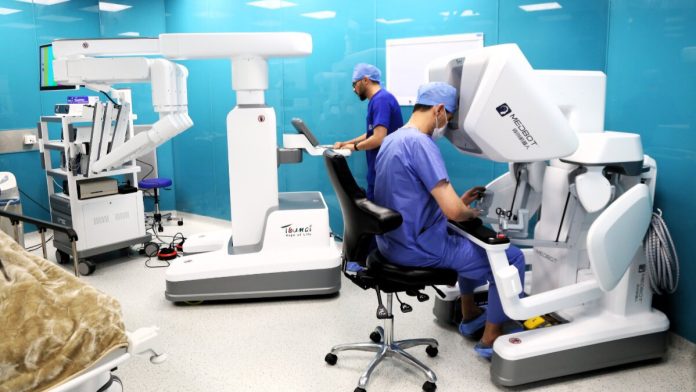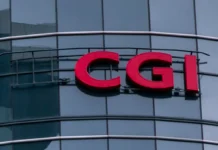The Oncorad Group, specializing in cancer prevention and treatment, has achieved a historic medical milestone by performing the first-ever robotic surgeries in Morocco. This groundbreaking event marks a significant advancement for both the Kingdom and the African continent.
“Morocco has taken a major step forward in the medical field with its first robotic-assisted surgeries. These interventions represent a pivotal moment in the evolution of the country’s surgical practices,” stated Samlali Redouane, CEO of Oncorad Group, in a statement to MAP.
“Today is a landmark day for surgery in Morocco. The introduction of robotic surgery will radically transform our surgical performance,” he celebrated, adding that “our already highly skilled surgeons will benefit from this advanced technology to enhance their procedures.”
Robotic surgery enables surgeons to perform a wide range of complex interventions with greater precision, flexibility, and control compared to conventional techniques. Dr. Samlali, also a professor of radiotherapy, explained that the robotic system allows instruments to rotate 360 degrees, a capability beyond human hands.
Furthermore, this technology offers the possibility of remote operations, with surgeons working comfortably from a seated position, reducing fatigue and increasing precision. The 3D imaging system clearly distinguishes vessels, nerves, and tissues, minimizing side effects and improving surgical outcomes.
The surgeries performed on Wednesday included a radical prostatectomy for prostate cancer, involving the removal of the prostate, and a partial nephrectomy, entailing the removal of a kidney tumor while preserving the kidney. These procedures were detailed by Youness Ahallal, a urologist and oncological urologist at CHU de Nice and the surgeon responsible for these interventions.
“Both operations were a success,” Dr. Ahallal announced, noting that the 3D vision and precision provided by the robot were crucial to the success of these procedures. This innovation provides a 3D visual system that offers a depth perception and magnified image of the organs being operated on. This allows the specialist to control all machine actions with the utmost delicacy to preserve the patient’s organs as much as possible.
This event marks the beginning of a new era for medicine in Morocco, where technology and innovation will continue to play a crucial role in improving medical care.





